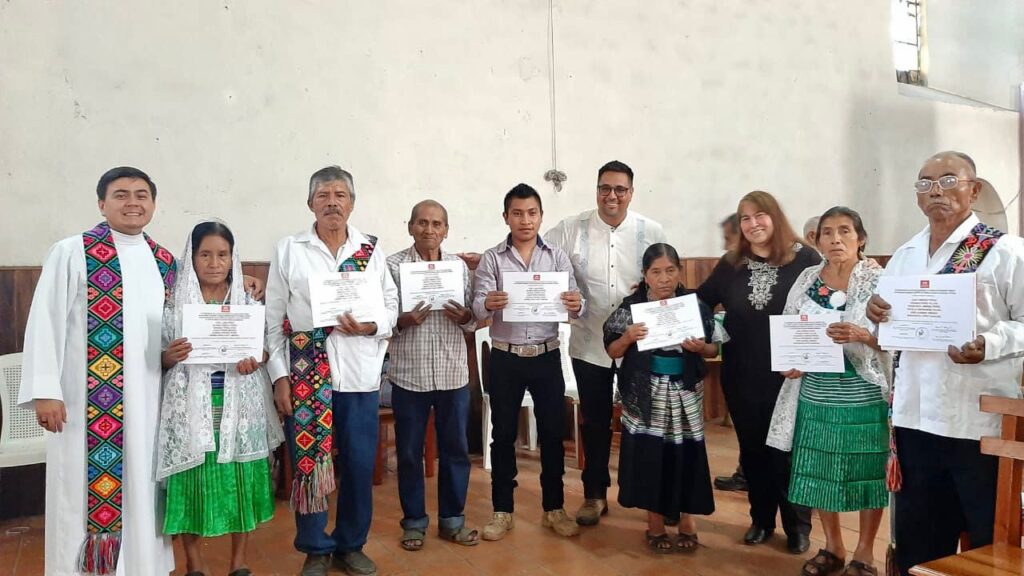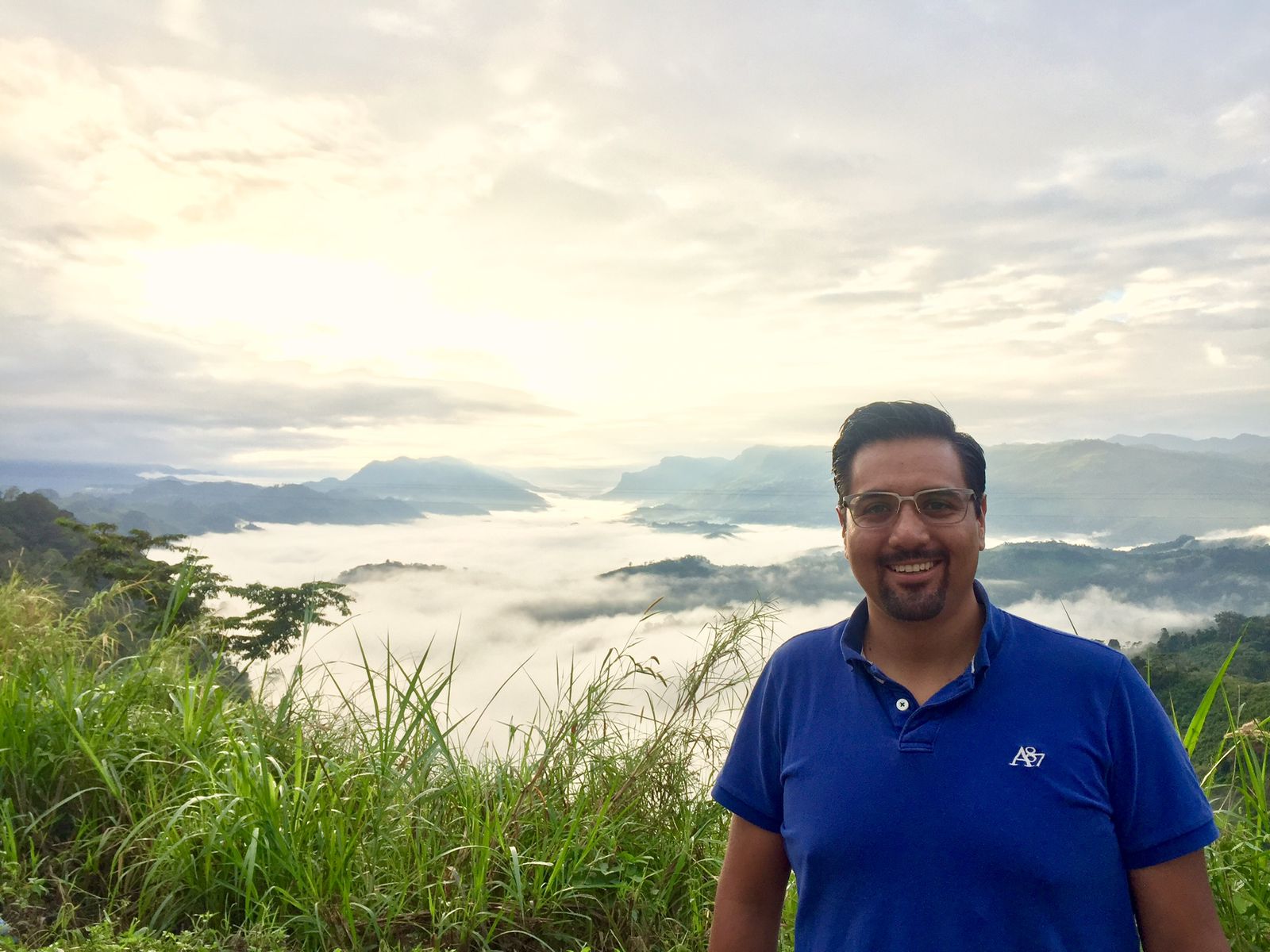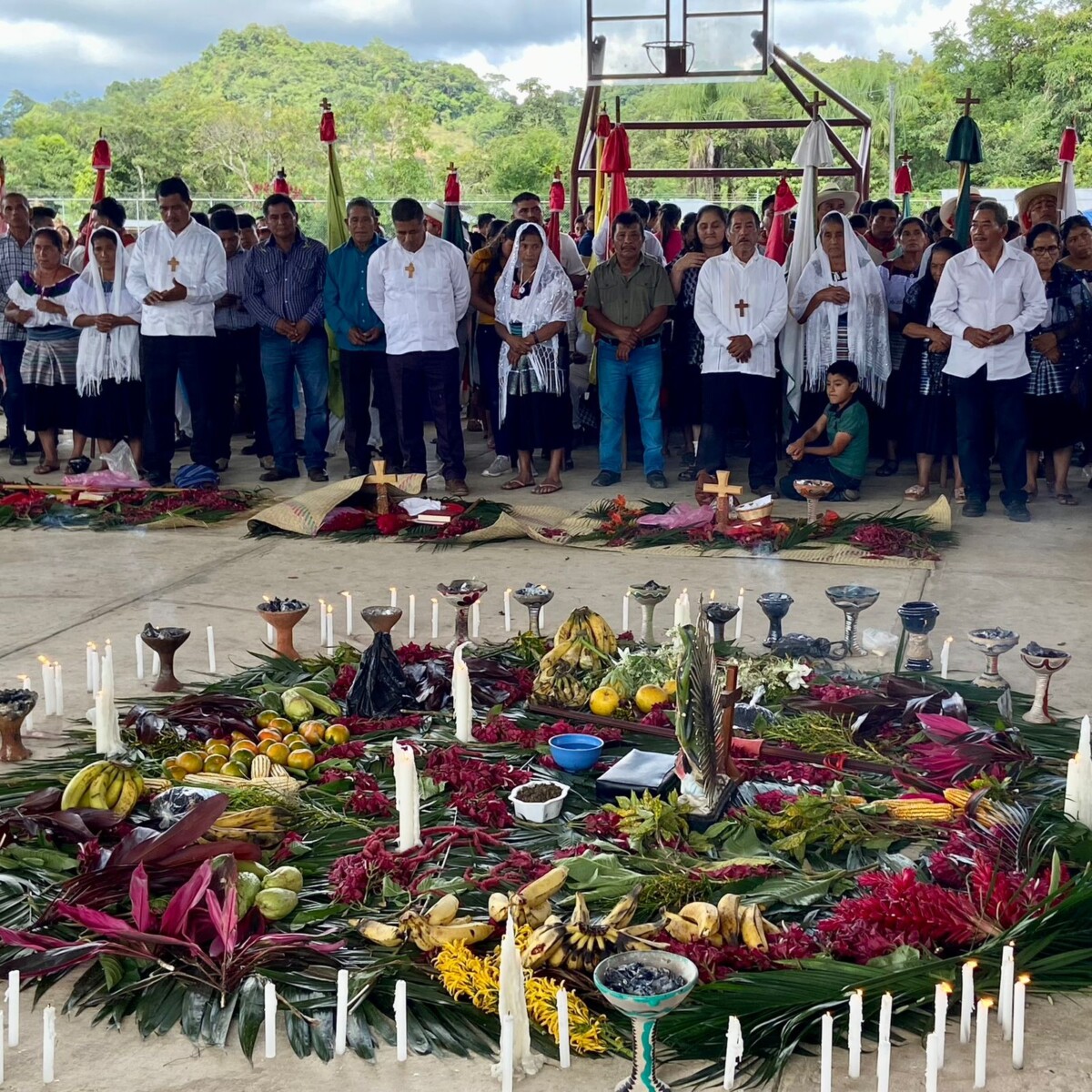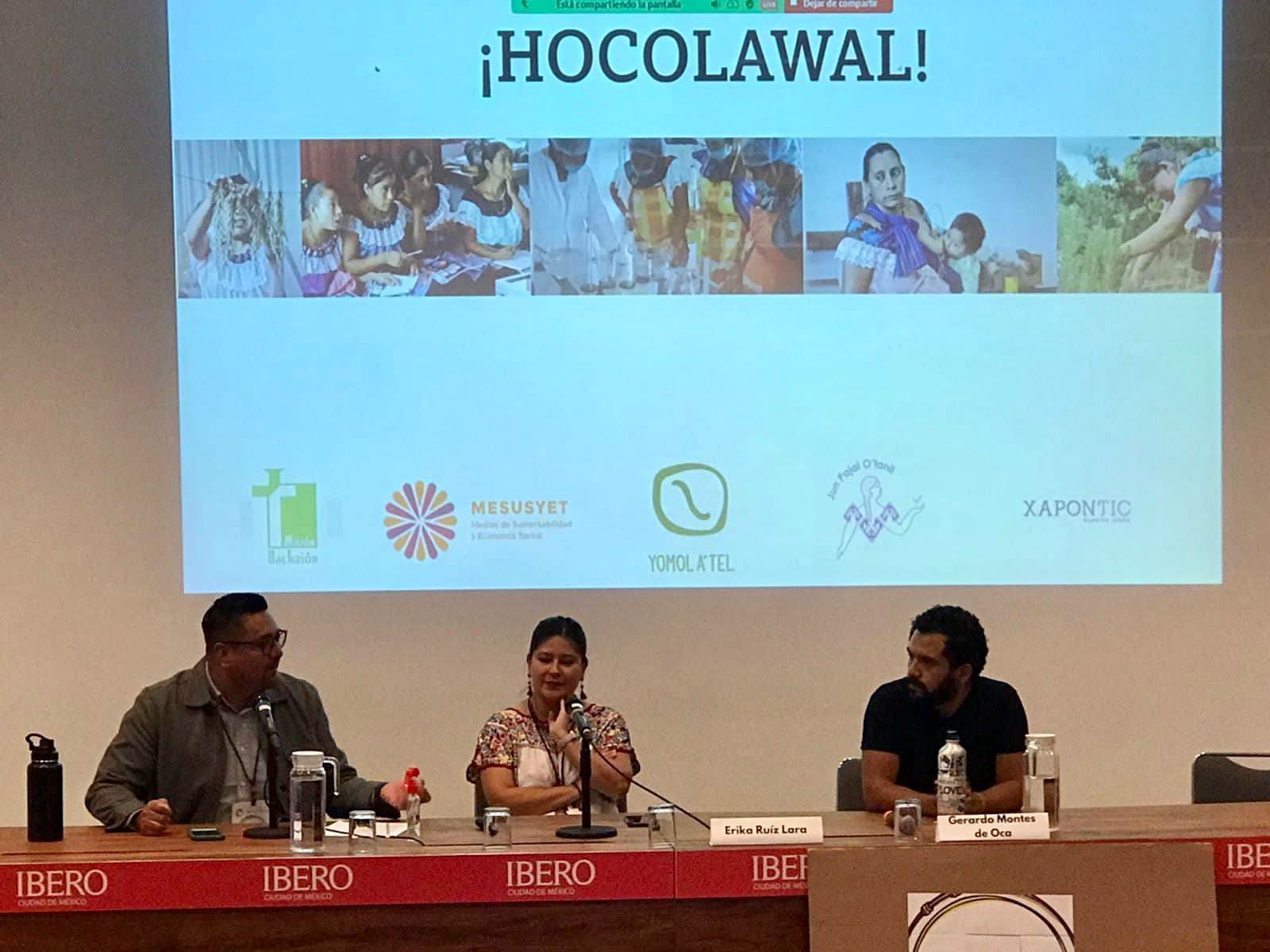Indigenous communities are the guardians of the future

Coming out of his comfort zone and reaching out to the indigenous communities of his country has allowed Jesús Becerril, a young Mexican economist, to widen his professional and vocational horizons. What started as a volunteering experience became an occasion that changed his life 360 degrees.
Jesús lives in the city in Mexico, where he teaches in the Economy Faculty of the Universidad Autónoma del Estado of Mexico (Autonomous University of the State of Mexico), and since a year or so collaborates with some intercultural projects at the Misión Indígena de Bayamón (Bayamón Indigenous Mission) in the Chiapas, Mexico. His spirit of social service has always kept him active in various initiatives promoted by the Society of Jesus, but it was an experience lived in south Mexico that made him discover a world in which ancestrality, culture and the caring of the planet are connected and talk about the future.

“If I remain in my stability, I will never be an instrument of change”, Jesús kept repeating to himself and in this spirit, he left for the Chiapas, a state in which the population is about 26% indigenous, mostly belonging to the Tzotzil and Tzeltal groups. Already in 2016, Pope Francis had visited those lands, highlighting the marginalization the indigenous people suffered and affirming that they should be asked for advice on how to take care of the environment in the face of the climate crisis the world is experiencing. Then, Jesús did not yet imagine that that message would have encouraged him to participate in The Economy of Francesco, a global community of young entrepreneurs, economists and changemakers that, responding to the call of Pope Francis, try to generate processes that may give a soul to the economy.
During his first six months in the Chiapas, Jesús participated in a typography shop project that provides training material to 640 indigenous communities and carries out assignments at all levels: political, ecclesiastical, educative and economic. For Jesús, this experience was a school that introduced him to a world that was completely unknown to him, although geographically close.
Convinced that the indigenous comprise a richness for the modern world, Jesús believes that one of the advantages that these communities have to offer is “the sacred relation with the earth and the conception of work always oriented towards the common good, the thinking of ourselves as a community”.
He remembers with admiration an occasion in which he saw an indigenous woman participate in a manifestation, and the force of her speech touched him: “Her name was Pascuala – recalls Jesús – a woman who foremost, with a prophetic voice, claimed a future for her children. Because the thing that remained imprinted in my heart is that the indigenous communities cultivate a collective memory, they do not forget the historical struggle. They also give importance to community participation, they are the guardians of the future, of their children, of their communities and their territories”.
After the experience at the typography shop, he participated in a project called Yomol Ayinel, for the defense of life and territory, accompanying indigenous communities in their community administration processes for six months.
“One of the great lessons I owe to this experience in the peripheries where I participated in a shared cause, Jesús tells us, is that we cannot, as modern people, think of ourselves only as rational beings, but we must think of ourselves as profoundly spiritual beings, capable of connecting with God, with life, with the community, and, from this profound relationship, generate transformative processes that are more just and that promote dignity.”

The journey towards good living
In 2020 Pope Francis had called young economists and entrepreneurs to participate in an event in Assisi called The Economy of Francesco. Then, this event couldn’t take place due to the pandemic. Jesús had registered, but in that period he was diagnosed with cancer. The postponement of the event, Jesús narrates, allowed him to conserve hope in times of trial. That year, the youth that would have participated in the event organized themselves to create a global community in which they gave way to formation processes and various initiatives taking advantage of the virtual dimension. “In 2020 everything took place online, and this gave me the strength, life, enthusiasm”, recalls Jesús.
In the end, the event was physically held in September 2022. By that time, Jesús had overcome his cancer, and answering the call by going to Assisi was a “rebirth” for him. Pope Francis accompanied the youth, he listened to them, he got to know them profoundly, and finally he addressed them:
“It is about transforming an economy that kills into an economy of life, in all its dimensions. To reach to that “good living”, which is not the dolce vita or having fun, no. The good living is that mystique that the aboriginal people teach us to have in our relationship with the land“.
With this sentence, Francis underlined the richness that the Latin American indigenous people offer the modern world, the economy. Good living is defined as a principle and a way of life that has its origin in the indigenous cultures of South America, and promotes a culture of peace, of coexistence between people and populations in harmony with nature.
Jesús not only felt this quest as his own, but also felt embraced and at the same time supported in continuing his work to build a more humane, inclusive and fraternal economy. “In his final speech, Pope Francis spoke of spiritual capital, for which the meaning of life must be fundamental in the search for a new horizon. For me, one of the most touching moments was precisely that, to be seen as young people of our time, who not only see but also feel the violence of the economy. And to see the birth of a community of people who want to be protagonists, not only of their own future but also of the future of humanity,” Jesús concludes.

